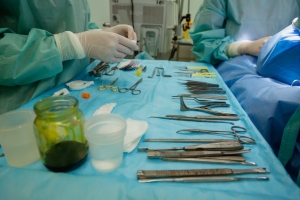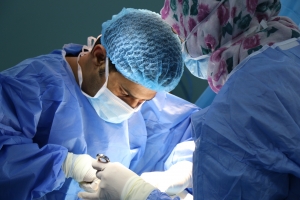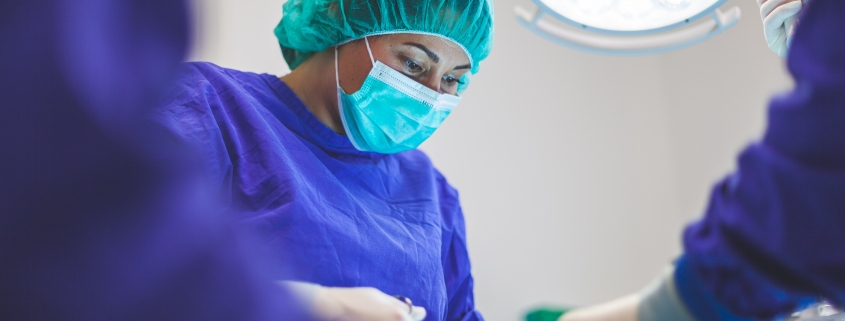What to expect when you have surgery
Going in for surgery that is not in an emergency situation is called Elective Surgery. This is pretty much any surgery that you are on a waiting list for. In physiotherapy we commonly see people before elective musculoskeletal surgery for pain management and to ensure they are as strong as possible, this makes the recovery post op a little easier. We will then see them again post op for a period of more comprehensive rehab. For many NHS musculoskeletal scans and surgeries the waiting lists can be long and using this time to educate yourself about what to expect when you have surgery and what you can do pre op to make your recovery quicker can be very beneficial.
One common injury we see in clinic that gets put in this situation is an ACL tear. This is a tear of one of the ligaments within your knee joint. It is most commonly done during deceleration and twisting on a planted foot, such as in football or a fall when skiing. Often these can present in clinic as acute swelling and reduced range of movement when someone is struggling to recover from a knee injury, we then send them off on their journey of scans to confirm that it is the ACL, determine whether they have damaged anything else within the knee in the process, and to decide whether surgery is the best decision for them. If surgery is the management of choice they will then go on a waiting list and commonly return to physio in the meantime to get back on their feet and as fit as possible pre op. If you have private health cover this is also a good time to shop around and make sure you choose the best surgeon suited to your needs. Their profiles are usually available online or can be accessed by contacting your provider or the hospital you intend to use.
We’ll continue to use the ACL as an example of a surgery experience. The majority of elective musculoskeletal surgeries are being managed in hospitals as a day case, the ACL is no exception. This means you should be in and out on the same day. You should be required to attend a pre op health screening at the hospital a few days before your surgery to ensure you are fit and able for the anaesthetic. This is likely to include a review of your medical history and any medications. They will then check height, weight, blood pressure and may even require ECG, bloods or urine samples. These are all routine pre op procedures.
Most big surgeries will be done under general anaesthetic so this is the first bit you will go through to after you are all checked in. You will not have been allowed to eat from the night before so expect to be hungry. Once you are under general anaesthetic you are asleep, so are none the wiser, you just wake up after your surgery. Easy. You will need to achieve a post-op check-list after your surgery to be allowed home – this includes things like having something to eat, having a pee, and meeting the in house physio to make sure you can walk and get up the stairs. You are likely to still be a bit numb at this point so don’t be fooled that you’re not going to be sore. You will need to have arranged someone to take you home and keep an eye on you for the rest of the day. You should be able to get up and about at home but may be on crutches. It is common to be pretty sore and groggy for a couple of days but expect to find yourself back in the physio room to start rehab within a week or two of surgery. It is important to get stated with this early to give yourself the best chance at getting back to full fitness. It is essential to get the swelling under control and restore your range of movement as soon as possible.
You are likely to experience considerable swelling and bruising post op. The bruising should settle within the first couple of weeks but the swelling may take longer. Immediately following surgery you will be pretty stiff and sore for a few days to a few weeks and will likely experience limited mobility of your knee. This is all normal and your physio will be able to guide you with how you are progressing. Physiotherapy will initially focus on swelling management, returning your range of movement, getting you walking well, and getting your leg muscles active again. Any pain or swelling in the knee joint will cause the muscles around the knee to turn off, without the correct exercises this can slow down your progress in the early stages. Your physiotherapist will be able to guide you in which ones get the best results for you, and how to progress them when you’re ready. Just remember, you have had surgery, it is normal to be a bit sore during exercises, but this should get easier with regular daily practice. Monitoring your swelling and pain at rest can be a good indicator on whether you are pushing yourself too hard. A puffy knee is normal for a while, but if it balloons after exercise or spending prolonged time on your feet then you are overdoing it. Work within its limits.



